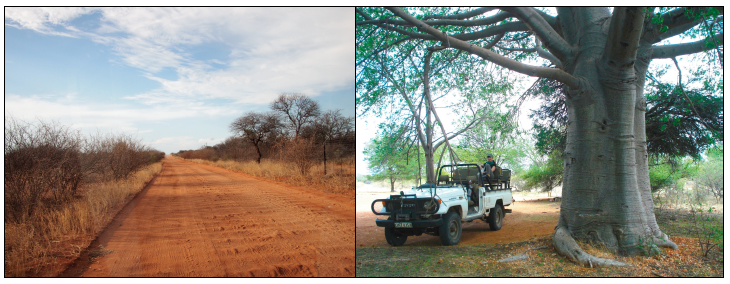[ field workshops ]
SONIC MMABOLELA
7th Annual Workshop/Residency for sound artists & composers
at Mmabolela Reserve, Limpopo, South Africa
16-29 November 2019
Conceived and directed by Francisco López (www.franciscolopez.net)
Coordination and logistics by Barbara Ellison (www.barbaraellison.com)
Downloadable pdf document with all the info: HERE
THE WORKSHOP/RESIDENCY:

‘Sonic Mmabolela’ is a 2-week workshop/residency for professional and semiprofessional sound artists and composers with previous experience in the area of sound experimentation and sound recordings. It takes place at Mmabolela Reserve, in the Limpopo province of South Africa, right at the border with Botswana. It involves field work, studio work and theoretical/discussion presentations. The workshop/residency has a special focus on creative approaches to the work with environmental sound recordings, as well as the role of listening, through an extensive exploration of natural sound environments. It does not have a technical character but is instead conceived and directed towards (i) the questioning of canonical conceptions of so-called ‘field recordings’, and (ii) the development and realization of projects of sonic creation by the participant artists/composers with the recordings gathered and through the experience of dedicated listening in natural environments.
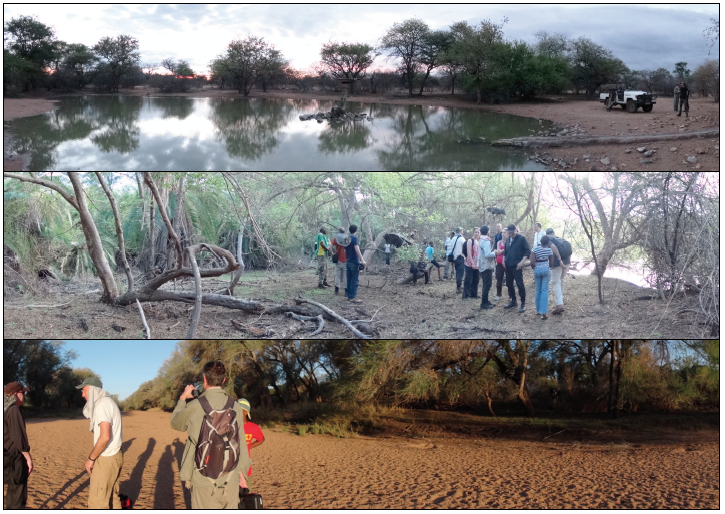
‘Sonic Mmabolela’ draws from previous experience of an equivalent workshop / residency, also conceived and directed by Francisco López, in the Brazilian Amazon (“Mamori Sound Project” 2005 2011), which has been attended by 70 artists from all over the world, who have produced to date dozens of releases, sound installations, exhibitions, films, publications and public presentations worldwide, based on the sound materials and experience gathered during that workshop / residency.
The activities of the workshop/residency include:
• Introductory theoretical/discussion presentation sessions on environmental recordings and sound creation, with a historical/philosophical/critical perspective.
• Field trips (both diurnal and nocturnal) for extensive listening and recording of sound environments.
• Sessions of studio work (with laptop) using these materials.
• Artists’ presentation/discussion sessions on sound creative work / environmental recordings.
• Development and realization of a sound piece by each participant with some of the original sound materials gathered in the field work.
• Presentation of the finished pieces by the participant artists.
All these activities are organized in a daily schedule according to the changing sonic environments of Mmabolela Reserve. This typically involves many hours of field and studio work but there is also flexibility to allow participants to choose from several schedule options. The language for the workshop/residency is English. The director also speaks Spanish and has conversational levels of French, Portuguese and Italian.
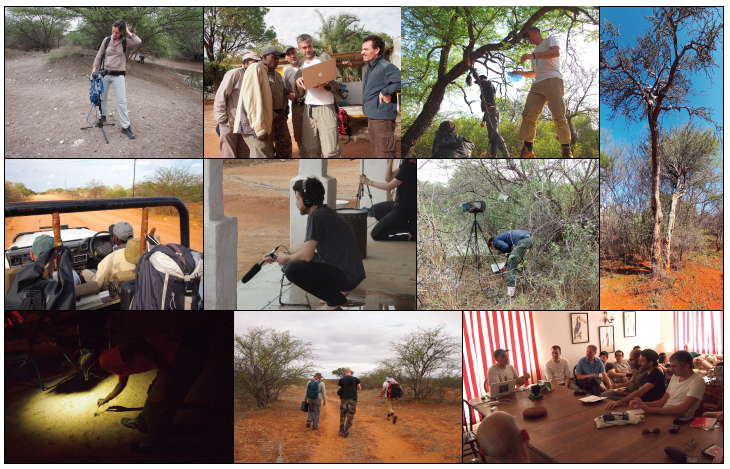
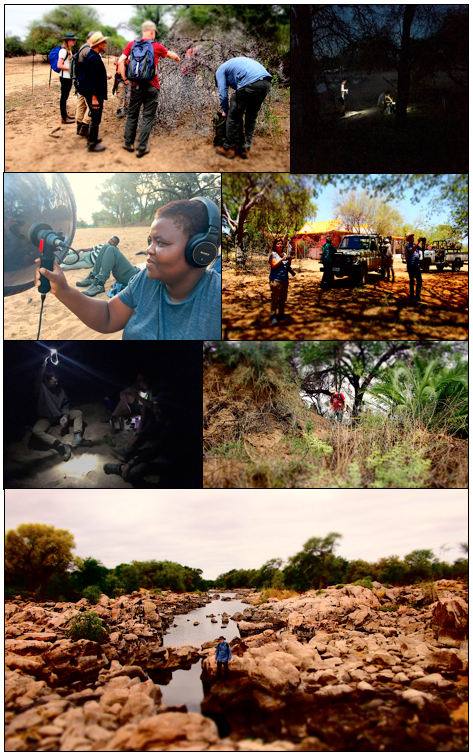
The 'Sonic Mmabolela' team:

Francisco López, director of ‘Sonic Mmabolela’, is internationally recognized as one of the major figures of the experimental music and sound art scene. He is also a Ph.D. ecosystem biologist, with more than twenty years of teaching experience in Spain and Latin America. His experience in the field of sound creation and work with environmental recordings spans over a period of forty years. He has collaborated internationally with hundreds of artists and his work has been released by 400 record labels worldwide. He has been awarded four times with honorary mentions at the competition of Ars Electronica Festival and is the recipient of a Qwartz Award for best sound anthology. He has realized hundreds of environmental recording projects, commissions, live performances, sound installations and workshops, as well as research in entomology and ecosystem dynamics, in over seventy countries of the six continents, with a particular emphasis on tropical and sub-tropical areas in the Americas, Africa and Australasia.
https://www.franciscolopez.net
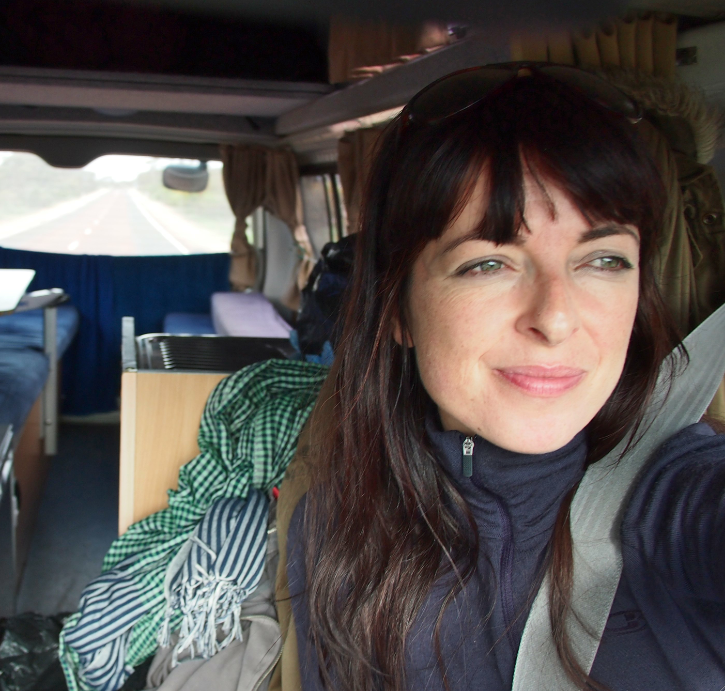
Barbara Ellison, project assistant of ‘Sonic Mmabolela’, is an Irish sound and visual artist whose recent work explores perceptual ambiguity and our propensity and desire to find meaningful patterns in our environment, even when none exist. Her performances often play with ritualistic forms giving rise to sonic structures emerging through a hypnotic repetitious exploration of simple sound-producing actions. Her projects manifest in diverse and often unexpected media and platforms involving long intense working periods of practical and theoretical research. Her work has been performed and exhibited worldwide, and her artistic research has brought her in recent years to Baffin Island, Nunavut, Arctic (2010), Amazon, Brazil (2011), Svaneti, Georgia (2012), Danum Valley rainforest in Borneo (2012), Cardamom rainforest, Cambodia (2013), Mmabolela, South Africa (2013), Iceland and Australia (2013), Japan (2014), Chile and Bolivia (2014), Nepal (2016). She has a PhD from the University of Huddersfield, UK (‘Sonic Phantoms’) and is currently teaching at the Institute of Sonology at the Royal Conservatory of The Hague, The Netherlands.

Neil Lowe is an IT consultant by day and an ambitious home cook whenever he gets the opportunity. A repenting MasterChef SA 2013 finalist with a passion for creating delicious food based on the scientific understanding of the cooking process, Neil likes to fuse modernist cuisine with various ingredients and techniques from modern and traditional South African, North African, Mediterranean and Asian cuisine. An integral part of the ‘Sonic Mmabolela’ team since its inception, his culinary prowess and ability to think on his feet in an often-challenging environment has kept participants eagerly looking forward to every meal.
[From 2013 to 2015, 'Sonic Mmabolela' was produced by James Webb: http://www.theotherjameswebb.com]
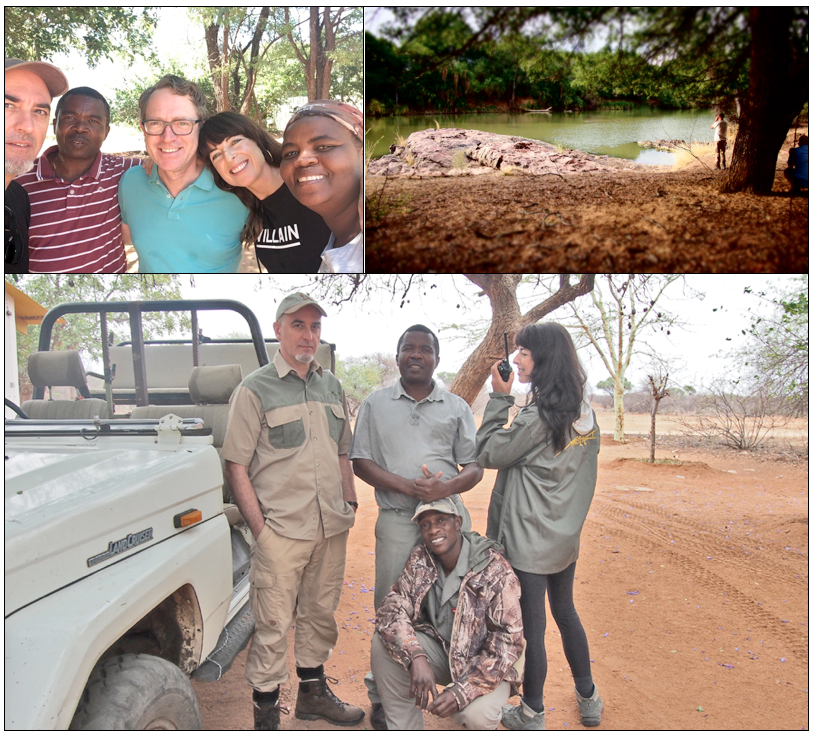
Comments from previous participants:
Read / hear in detail about 'Sonic Mmabolela' from a recent participant HERE
See additional selected images from 'Sonic Mmabolela' HERE
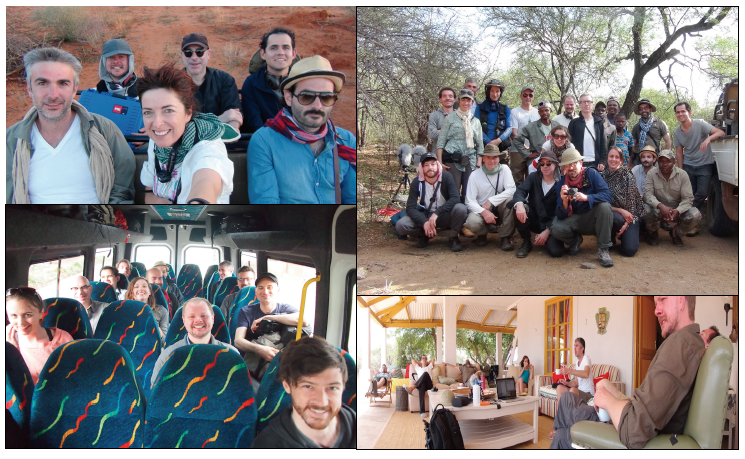
‘Sonic Mmabolela was one of the most amazing, interesting, inspiring, exhausting and fun experiences of my life. It was great and I can advise everybody to participate in the residency.’ - Stijn Demeulenaere (Belgium)
‘What an incredible and hypnotic aural feast! [...] another listening session is offered, down by 'the bridge', for the sunset concerto. I can not point out enough how profoundly engaging this activity is [...] the moment we sit down distant hyena sounds enchant our aural senses. In awe we hear the surrounding night live and breathe into our ears. Sonic Mmabolela was much more than i could ever have hoped for. It was outstanding from the first day to the last. An invaluable treasure of experiences, a unique and inspiring (but also exhausting) school that will resonate, on and on.’ - Dave Phillips (Switzerland)
'Stunning scenery, awesome conversations, fantastic people; after three years of attempting, to finally be able to come along was worth every cent. A very unique and inspiring opportunity that created memories and experiences I wouldn't trade for anything.' -Hannah Gilmour (New Zealand)
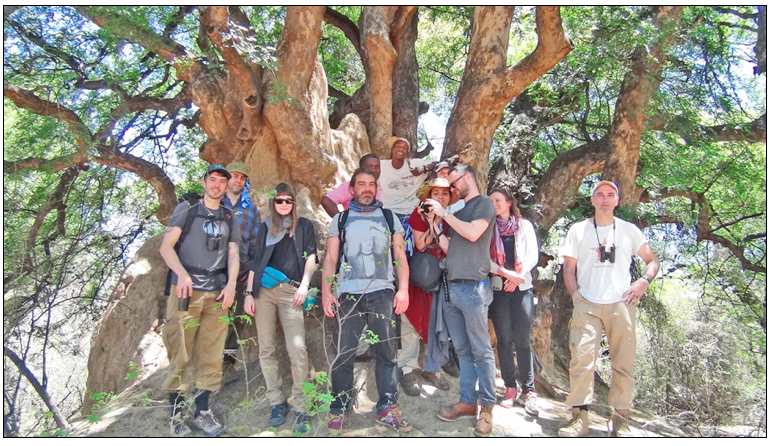
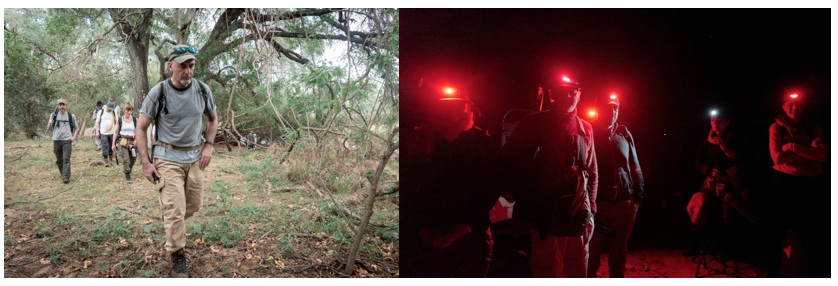
‘Gorgeus, amazing, incredible, enriching, enlightening, inspiring, intense and sometimes exhausting. Organized and directed in an impeccable way and seasoned with Neil's [the chef] delights. Sublime moments in the field listening sessions... A must!!’ -Rubén García (Spain)
‘Sonic Mmabolela was an enchanted place and ideal frame for deep listening, reflection, discussion, exchange, writing, composing, inspiration, breathing, seeing, awakening and of course: recording! Brilliant organization and guidance, amazing food and care. One of the best experiences I had since very long time.’ -Angelica Castelló (Mexico / Austria)
‘I came to Sonic Mmabolela with quite a simple goal, to record ambient soundscapes of the Southern African savanna in summer time. But I left with far more than that: a much wider appreciation of the act and art of field recording. To my own surprise, Sonic Mmabolela gave me insight into how to find the musicality in sounds emanated by nature.’ -Daan Hendriks (Holland/UK)
‘Truly inspiring.’ -Robert Schwartz (Austria)
‘Exceptional moments from the first day to the last.’ -Jean-Baptiste Masson (France)
‘Sonic Mmabolela was an invaluable experience that I will continually reflect upon.’ - Christopher Fleeger (USA)
‘The most inspiration I've ever had in two weeks and the warmest musicians I've met in a lifetime.’ -Matthew Aidekman (USA)
‘Mmabolela was a truly amazing and inspiring trip in excellent company. It's difficult to express just by using words, photos or even recordings how much I enjoyed it.’ -George Vlad Cancea (Romania/UK)

‘In one sense, Sonic Mmabolela was a singular experience centred around thinking about, engaging with and experiencing sound. But on another entirely unexpected level, it is the only residency I’ve attended where the phrase 'life-changing’ does not seem in the least bit hyperbolic. I’m left now, with new friends, new ideas and so much to think about—not least how future acts of creativity and all the elements of this earth, in all their complexity, might better exist together.’ -Tim Bruniges (Australia)'
‘My participation in Sonic Mmabolela was a mind-blowing experience which inspired me to compare both inner and outer conditions in the nature of these two fundamentally different places, Iceland and South Africa. Furthermore, it made me discover a different concept of time, rhythm or flow, which will become tangible in my artwork.’ - Thoranna Bjornsdottir (Iceland)
‘This was a truly wonderful and worthwhile experience. There were lots of opportunities to record, listen and reflect. I met the most amazing people and will never forget my time at Mmabolela.’ –Niketa Sheth (UK)
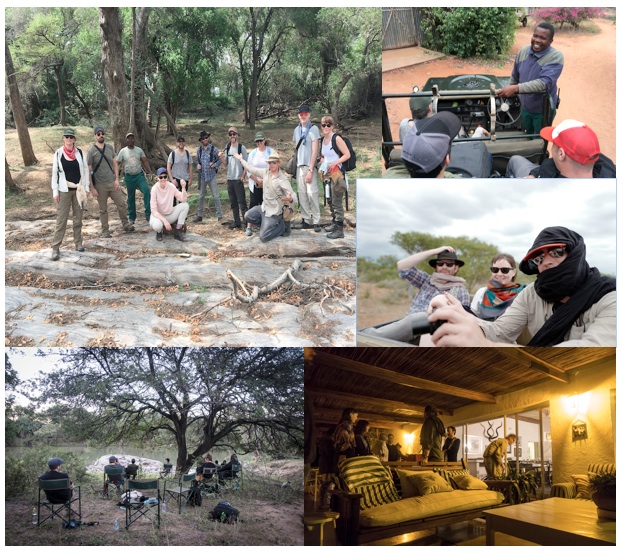
‘This trip really did change the way I listen and record. These two weeks of intense, dedicated listening and recording were highlighted by the wonderful fellow sound recordists I got to spend them with. Thanks, Barbara and Francisco, for putting us all together.’ -Andy Martin (USA)
‘Mmabolela is where I met great and inspiring people, formed new musical collaborations, listened, listened, and listened to the rhythm of the South African bushveld. Also our cook, Neil Lowe, provided a feast fit for kings.’ -Roché van Tiddens (South Africa)
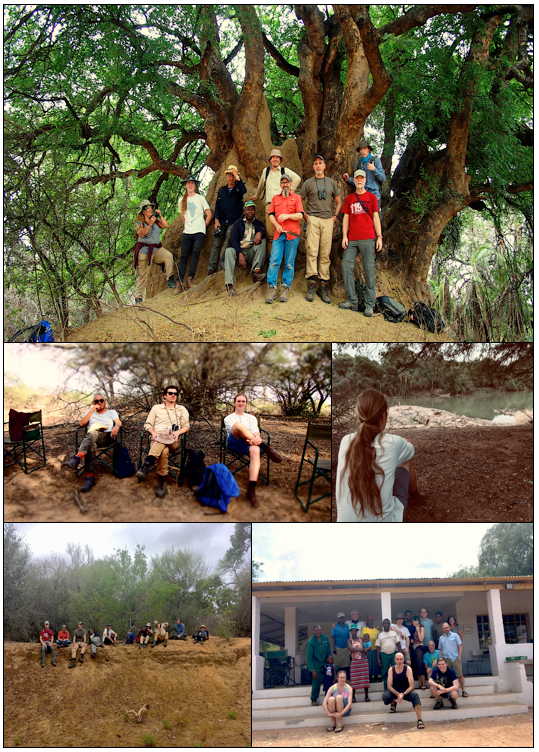
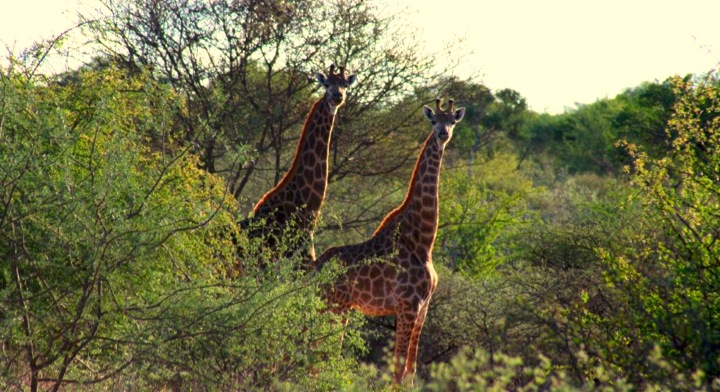
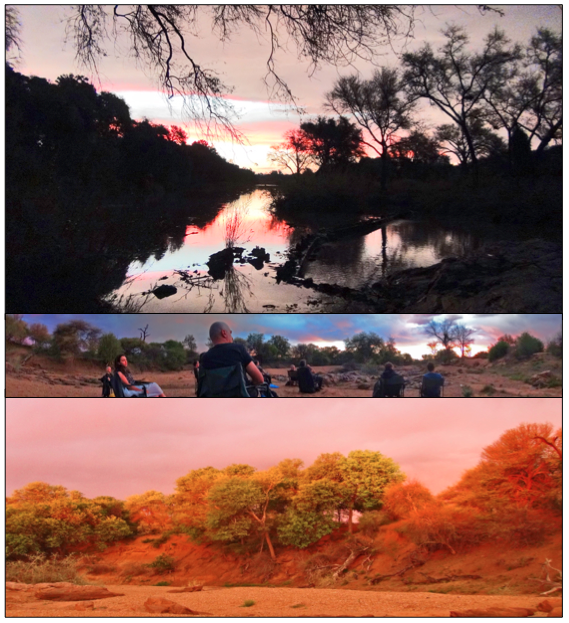
MMABOLELA RESERVE:
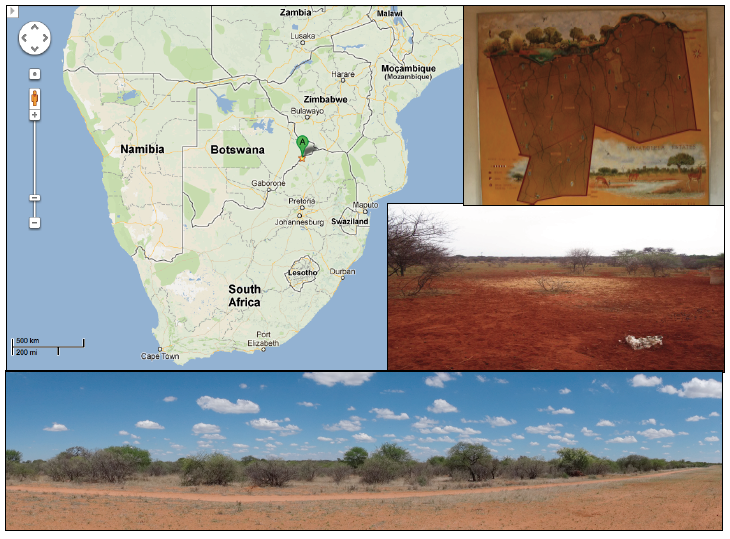
Mmabolela is a private nature reserve located in the Limpopo Valley Bushveld, northern Limpopo province, South Africa, right at the border with Botswana (approximately 7-8 hours drive from Johannesburg) (http://goo.gl/maps/4g3zW). This 6500 Ha reserve is a Natural Heritage Site rich in wildlife and home to a variety of plains game, hippo, crocodile, leopard, jackals, bat-eared foxes, and many species of small carnivores.
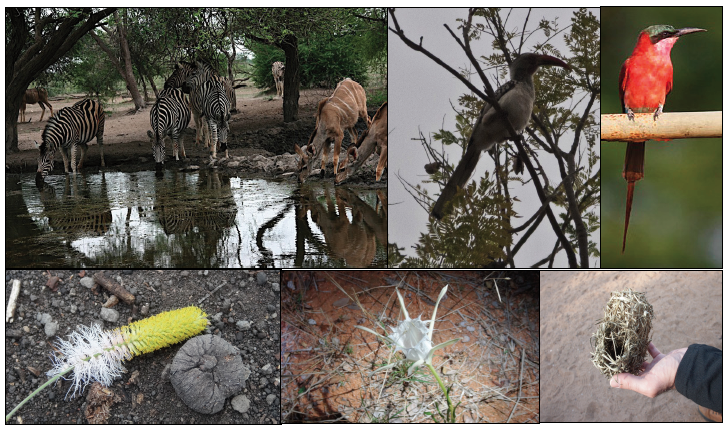
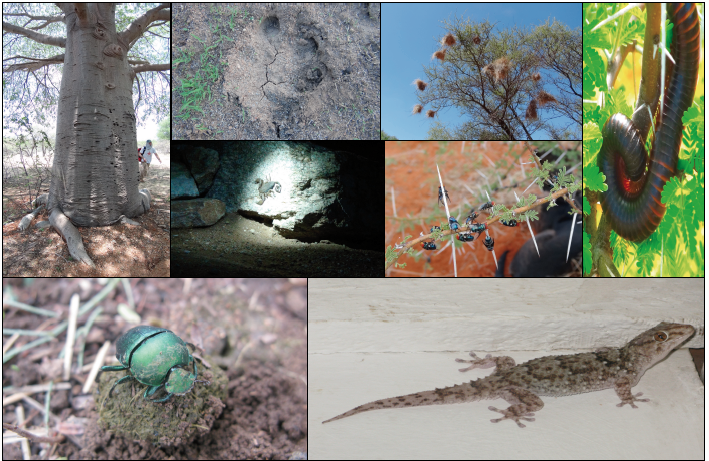
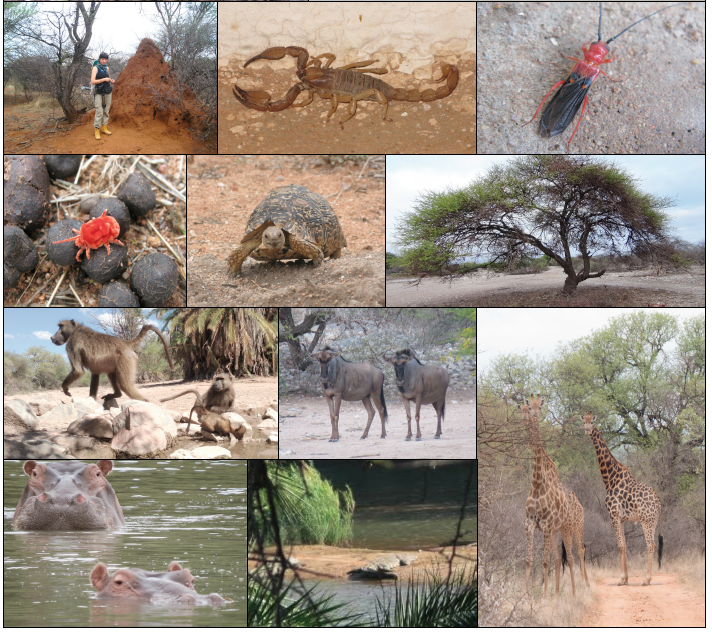
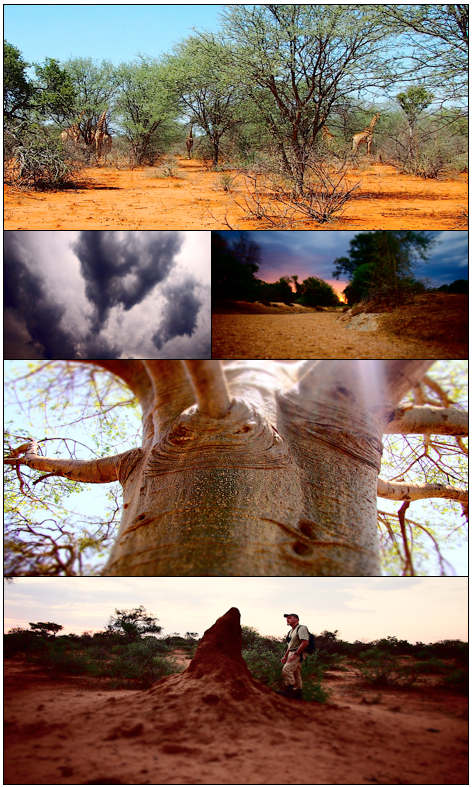
The area, with its beautiful riparian woodland and permanent pools, is renowned for its abundant and diverse birdlife, especially migrants. It has extensive pristine Limpopo River frontage, including the famous Mmabolela Rock and Hippo Pool.
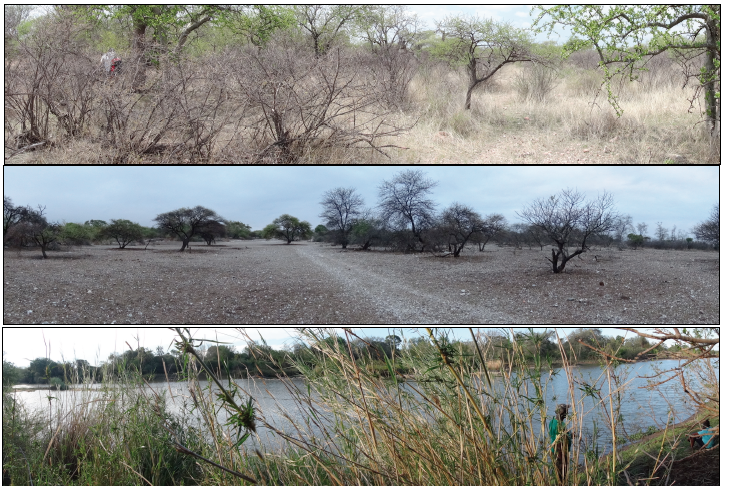
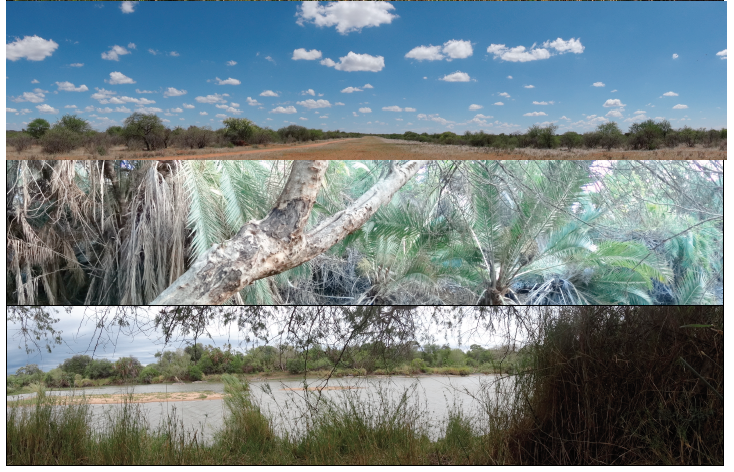
Mmabolela has no recent history of agricultural spraying or dipping, or electronic pollution (microwave or cell phone towers), and consequently has a bountiful insect population which provides food for many species of birds, rodents and small mammals, all of which contribute to the biodiversity of this ecosystem.
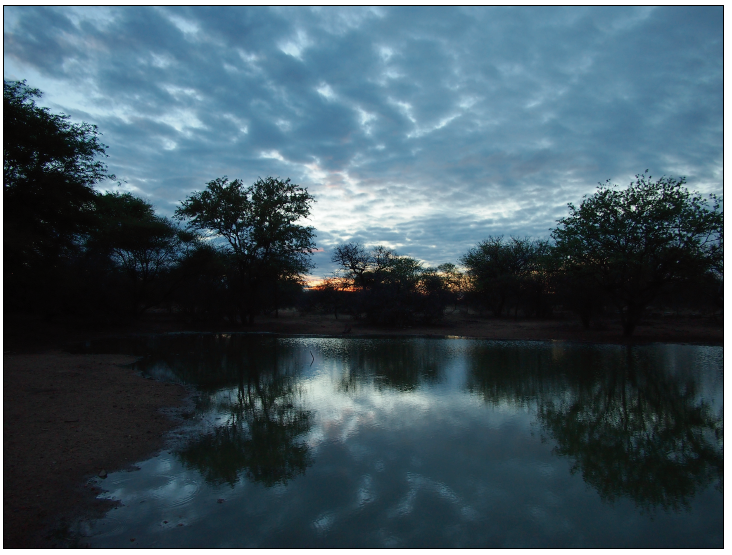
During the summer months (October - March) the Limpopo Valley has average day maximum temperatures close to 30ºC (85ºF) with night minima around 17ºC (60ºF). The period of November-December is the first half of the rainy season, although given the overall dry climate of the region, that translates into moderate registers of 40-60mm/month, with an average of 8-10 days of rain per month during that period. Daylight hours go approximately from 5:30AM until 7:30PM.
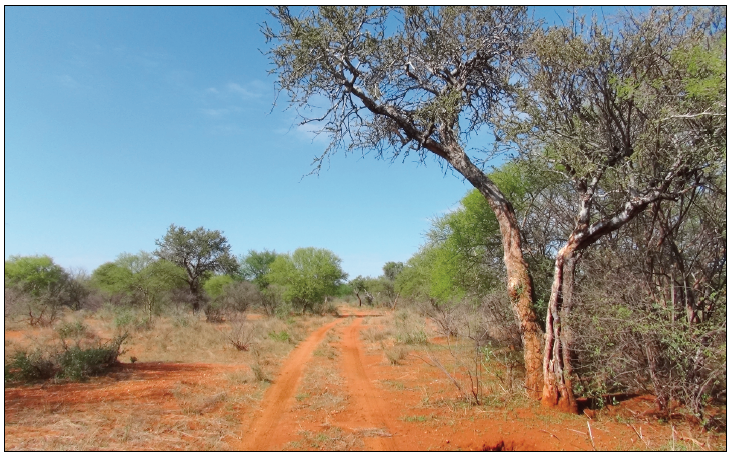
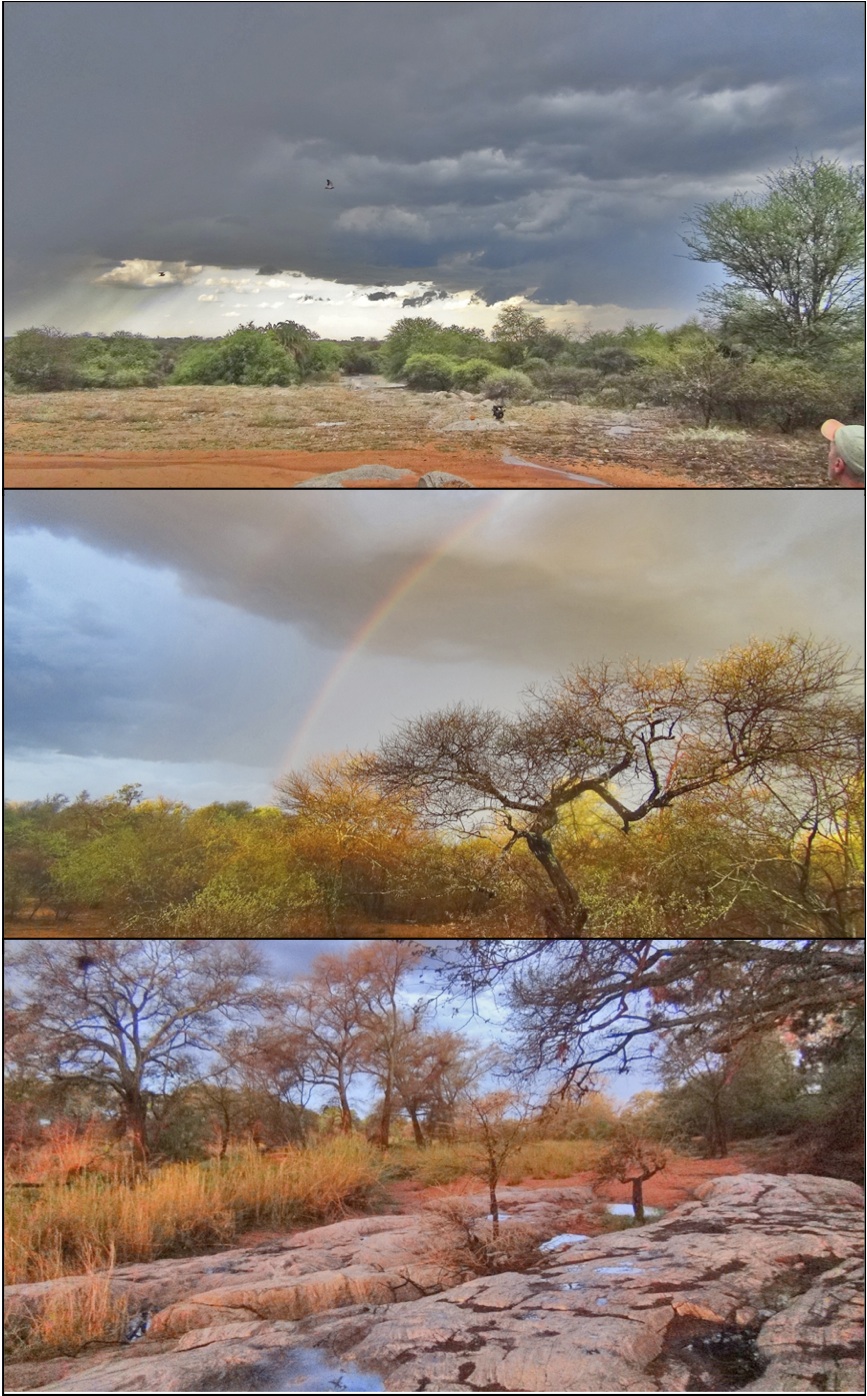
LOGISTICS / WHAT TO BRING:

For the realization of the workshop/residency we hire the entire Mmabolela reserve for the whole duration of our stay. We have an original fully-equipped farmhouse in the property with several buildings at our disposal (the “Weederdooper” homestead), with several double rooms, which can accommodate a total maximum of 10 guests. The main building overlooks a water hole frequented by game and the homestead has its own plunge pool.
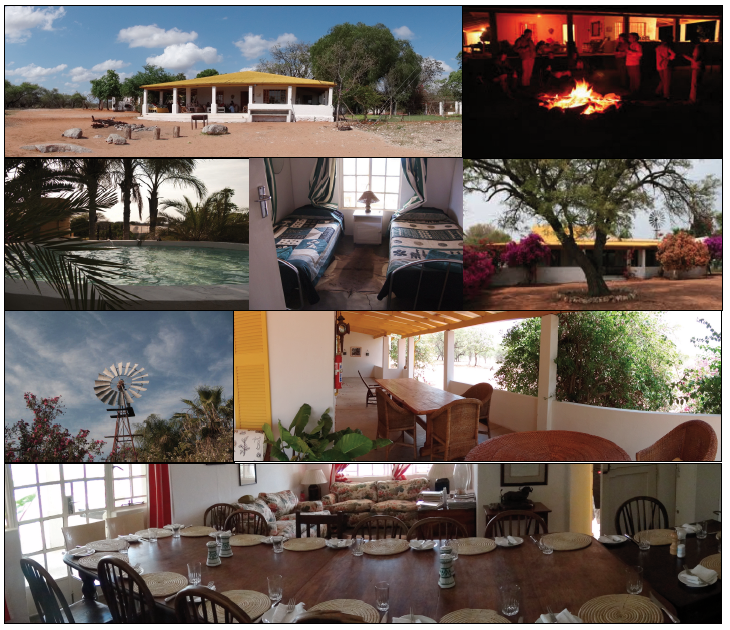
All transportation is booked and organized for participants from the very arrival at Johannesburg airport (individually), all the way to Mmabolela reserve (group minibus). Hotel accommodation in Johannesburg is also booked for participants on arrival and departure dates.
Although Mmabolela is normally a self-catering, self-drive operation, for this workshop/residency we hire a chef/kitchen staff and local guides/drivers for all daily field recording trips (day and night) and any other logistic needs, including the necessary 4x4 vehicles.
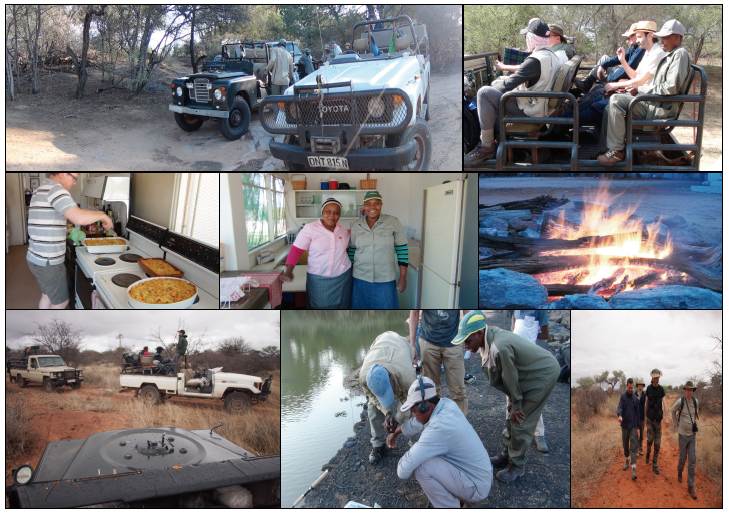
Like most wilderness areas in Africa, Mmabolela reserve is home to a large number of wildlife species, some of which might be hazardous. There are no lions in the reserve and leopards -as it happens in virtually all areas where they are presentare an extremely rare sight. Unbeknownst to most people, however, hippos can be dangerous animals, particularly at dawn and dusk when they go out of the water to graze.
Naturally, during our field work, we take all necessary precautions and take no risks whatsoever with these or any other potential hazards. Activities such as hiking, biking and fishing are regularly carried out by visitors at Mmabolela. Despite this, and solely for reasons of safety, there are some obvious restrictions to individual, un-guided movements in the reserve. All participants are asked to sign a standard liability form for outdoor activities of this kind in a wilderness area of this type.

There is no malaria in the region. Vaccinations for hepatitis, yellow fever, typhus and rabies are customary for travellers in the African wilderness in general; you should visit your doctor for advice on these. Every participant is responsible for taking proper health travel insurance.

Here is a list of necessary/useful things to bring to
Mmabolela:
[Most common things, such as sunblock, batteries or toiletries can obviously be found and bought in Johannesburg, prior to the trip to Mmabolela. To prevent wasting time and last-minute rushes, however, we always recommend to arrive in South Africa with all the necessary things.]
• SOUND RECORDING GEAR:
Participants should bring their own portable field recording gear. Windscreens are strongly recommended, as windy conditions are quite common. An umbrella can be occasionally useful to protect equipment from both direct sunlight and rain. There are opportunities for hydrophone recordings in the Limpopo river. Each one of the possible several daily field recording trips (which are made in group – see note below) might typically produce about 2-3 hours of recorded material. In addition, there are also opportunities for optional overnight recordings (leaving recording equipment overnight, secured with wire or cable ties, in selected locations), which might produce many hours of recordings. All of this has to be considered in terms of batteries and memory cards / memory drives.
[Note: Although there are opportunities for all modes of recording (including short hikes and overnight recordings), a typical group field recording trip consists of: driving to an interesting area in terms of the sound environment, leaving the equipment there recording for a relatively long period of time (typically 2-3 hours) while we wait somewhere else, and then collecting the equipment. This strategy prevents interferences in the recordings among the different people in the group, and, even more importantly, serves to capture all the animal sounds that would otherwise remain silent with human presence around.]
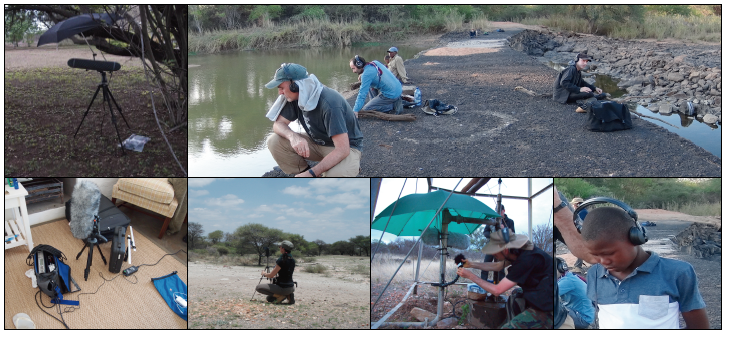
• STUDIO EQUIPMENT:
It is absolutely necessary that each participant brings his/her own studio equipment; that is, a laptop computer with audio software that the user knows how to use, as well as headphones, any external memory drives he/she might need for copies/back-ups, and all the necessary cables. For the workshop/residency we bring a professional monitoring speaker system, as well as a beamer, for presentations and group listening sessions / screenings.
• ADAPTORS:
Voltage in South Africa is 220-240 Volts. The electrical plugs/sockets are spectacularly large (see plug info here), so you will need adaptors for your equipment plugs (e.g., see adaptor info here). A small power strip for all your plugs is a must and reduces the need for adaptors. We normally bring some extra adaptors, to have at least one per participant.
• FLASHLIGHTS:
Although there is electricity in the farmhouses, some occasional power restrictions might take place. In addition, we have field recording sessions at night almost every day. A flashlight is thus one of the mostcommonly used tools in Mmabolela. Head flashlights are very practical during field work. Bring plenty of batteries or rechargable ones with charger.
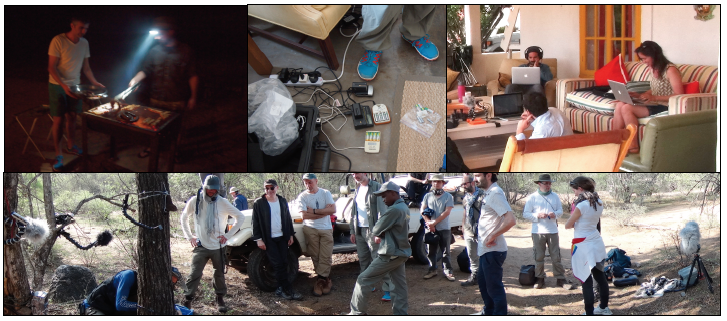
• CLOTHES:
For the field recording trips and on relatively cooler nights you might prefer to wear long pants and a long-sleeve shirt -also to prevent insect bites and scratches from thorns, etc. For all other situations, shorts and T-shirts are the most comfortable. Bring a bathing suit, since we do have plunge pools. Bring a thin jacket/sweater, as some nights/early mornings might be relatively chilly. Rain is very likely to happen, sometimes torrentially. Bring proper rain gear and a small umbrella (some people also use it for the sun).
• SHOES:
Comfortable hiking boots/shoes are recommended for the field recording trips and short hikes. For the houses and surrounding areas, sandals/flip-flops are perfect.
• SUNBLOCK / HAT:
During the day it is typically sunny and it might get occasionally quite hot. Sunblock, a hat and a sun scarf are very advisable.
• MEDICATION:
Every participant is responsible for taking proper health travel insurance. Bring all your necessary medication. If any participant suffers any particular ilness or disease, he/she should inform the organizers beforehand and bring all proper specialized medication.
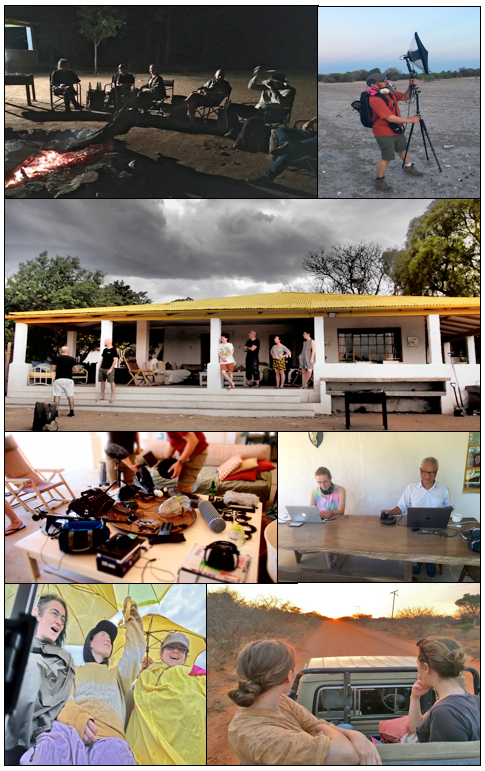
SERVICES, RATE AND APPLICATION/REGISTRATION:
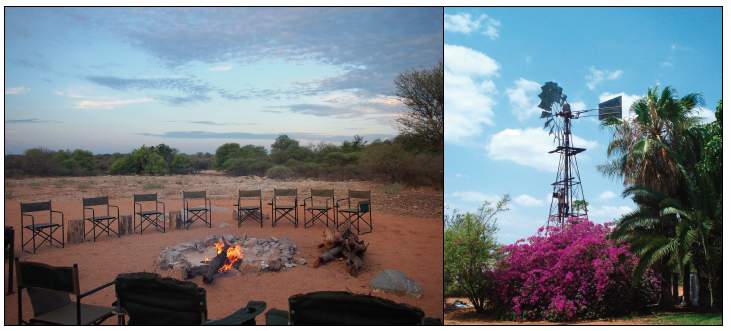
The workshop/residency includes:
• Hiring of the entire Mmabolela reserve for exclusive use by the participants during the whole duration of the workshop/residency.
• Daily working sessions with field recordings, studio work, and collective theoretical/discussion presentations (total of 8 to 12 hours a day, with optional activities and flexible schedules).
• Full accommodation: 2 nights hotel (arrival/departure) in Johannesburg (double room) + 13 nights in private farmhouses in Mmabolela (double rooms with beds, separate bathrooms, shower/toilets, dining/studio working room, electrical system with 220V power sockets, monitoring speaker system, beamer, kitchen, plunge pools).
• All meals and beverages in Mmabolela as well as dinners in Johannesburg for arrival and departure days.
• Pick-up service from/to the airport in Johannesburg.
• Return trip Johannesburg - Mmabolela by minibus (approx. 7-8 hours).
• Daily transportation in Mmabolela by 4x4 vehicle to field recording sites (day and night).
• Staff: local guides/drivers, chef, kitchen/maintenance workers, and logistics manager.

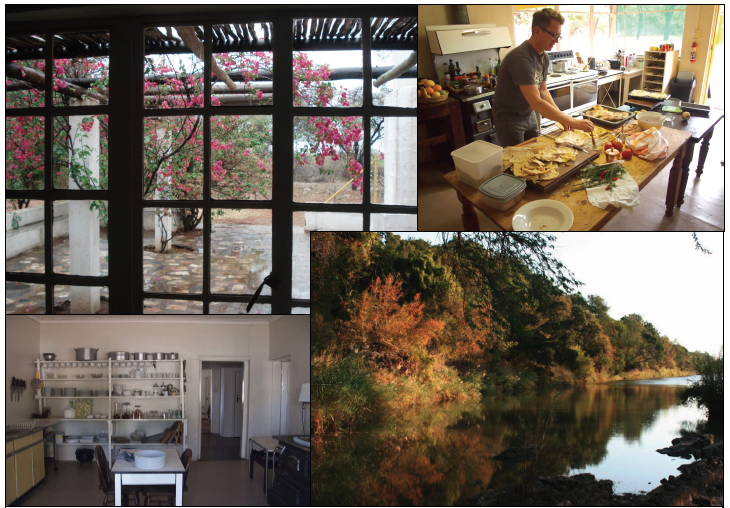
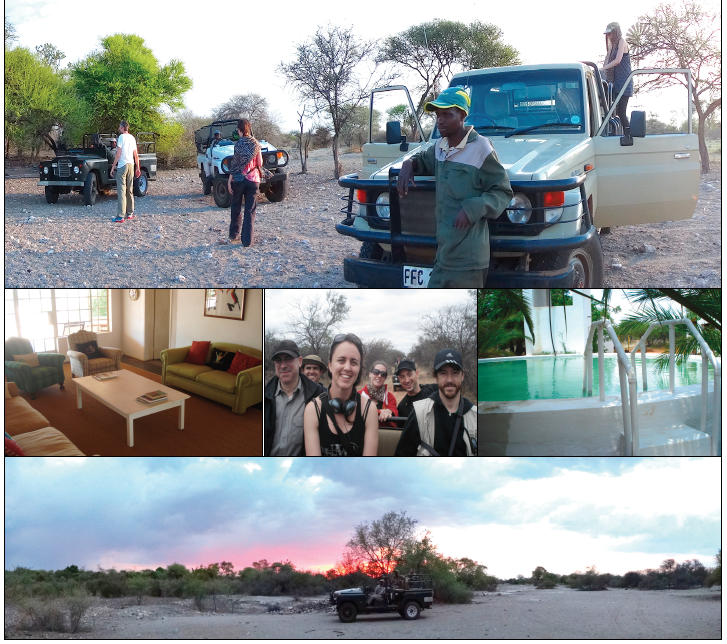
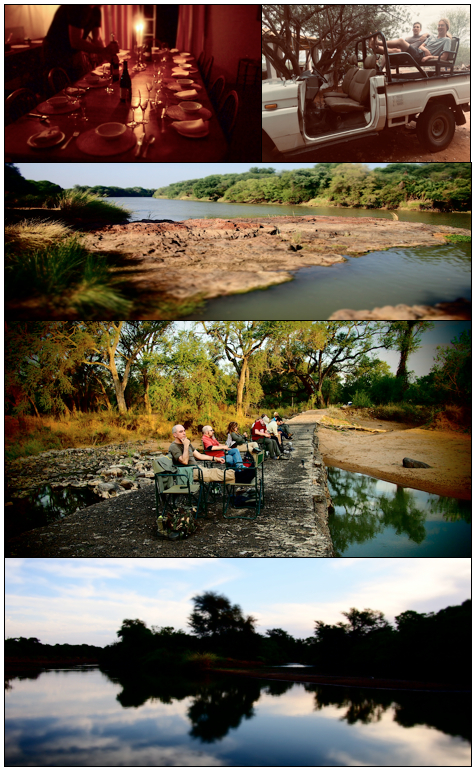

Rates:
Workshop/Residency 2-week rate per person: 2,900 Euros
(Includes all of the above. Does not include flight to Johannesburg from participant’s departure location nor medical insurance.)
‘Sonic Mmabolela’ is a non-profit, independently-run project. Each participant artist/composer must seek funding for his/her workshop/residency costs, as well as the flight to Johannesburg and his/her medical insurance. To this end, after the application process (see below), we provide formal invitation letters to prospective participants.
Dates workshop/residency:
The ‘Sonic Mmabolela’ workshop/residency will take place in:
16 - 29 NOVEMBER 2019
The group needs a minimum of 6 participants for the workshop/residency to take place.
Application:
The capacity of the workshop/residency is limited to a small group: currently a maximum of 10 participant artists/composers. Artists/composers interested need to send an application (only email, no post), consisting of: (i) updated CV, and (ii) examples of their sound work on audio files or -preferably- through internet links, to the following email address:
franciscolopez<at>franciscolopez.net
Registration:
The artists/composers selected after the application process will receive a formal invitation letter from the director of ‘Sonic Mmabolela’ to help them in seeking funding support. To join the workshop/residency they will have to pay the registration fee and fill in the registration form that will be later provided by the organizers.
Deadline for registrations: 1 JULY 2019
[Note: If the maximum capacity of 10 registered participants is reached before the deadline, the workshop/residency will be therefore complete. If the minimum number of 6 registered participants is not reached by the deadline date, the workshop/residency will not take place.]
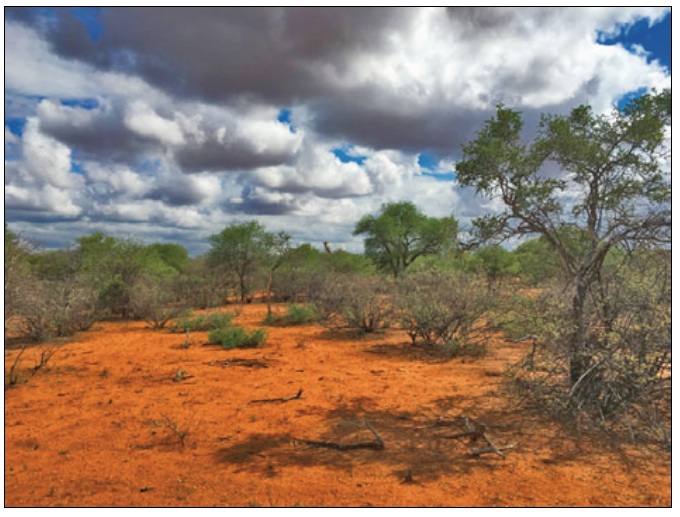
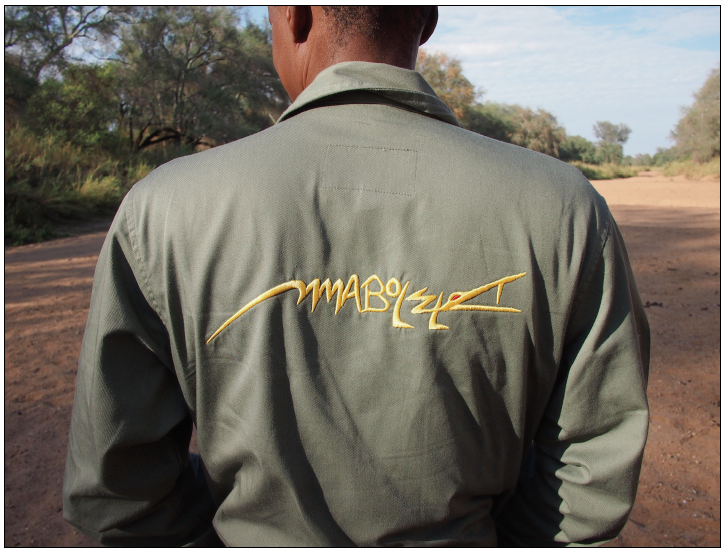
------------------------------------------------------------------------------------------------------------------------------------------------------------------------------
------------------------------------------------------------------------------------------------------------------------------------------------------------------------------
------------------------------------------------------------------------------------------------------------------------------------------------------------------------------
[ amazon workshop ]
this workshop/residency was carried out anually during 2005-2011 and is on standby since 2012:
Mamori Sound Project
6th Annual Workshop/Residency for sound artists & composers
at Mamori Lake (Amazon, Brazil) / October 2011 / 2 weeks
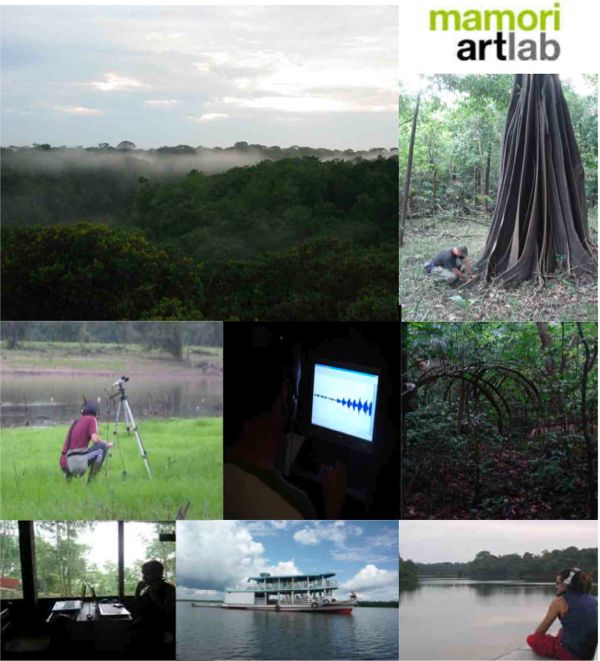
Conceived and directed by Francisco López (www.franciscolopez.net)
Organized by Mamori ArtLab
view program details (pdf)
view short video (1:11)
Listen to Radio Show on Mamori Sound Project 2007:
Giant Ear Radio Show (free103point9 Radio, New York, April 2008)
Download 2 hours mp3 - 48 MB
THE WORKSHOP/RESIDENCY:
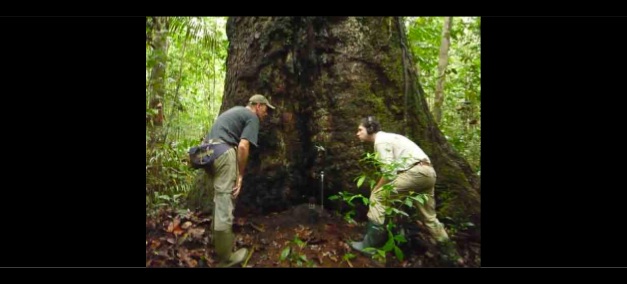
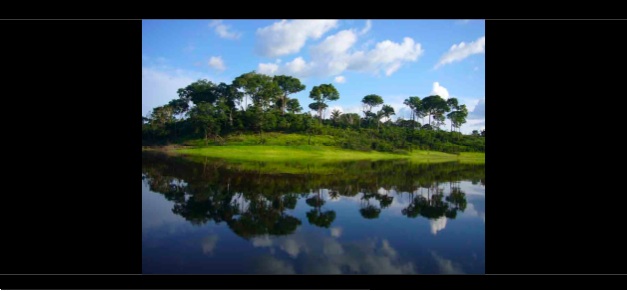
The activities of the workshop/residency include:
- Introductory theoretical/discussion presentation sessions on field recordings and sound creation, with a historical/philosophical perspective.
- Field trips (both diurnal and nocturnal) for extensive listening and recording of sound environments.
- Collective listening and discussion sessions of the sound materials gathered. - Sessions of studio work (with laptop) using these materials.
- Development and realization of a sound piece by each participant (or in small groups), as part of the collective project.
- Public presentation of the finished pieces for both the participant artists and members of the local community at Mamori Lake.
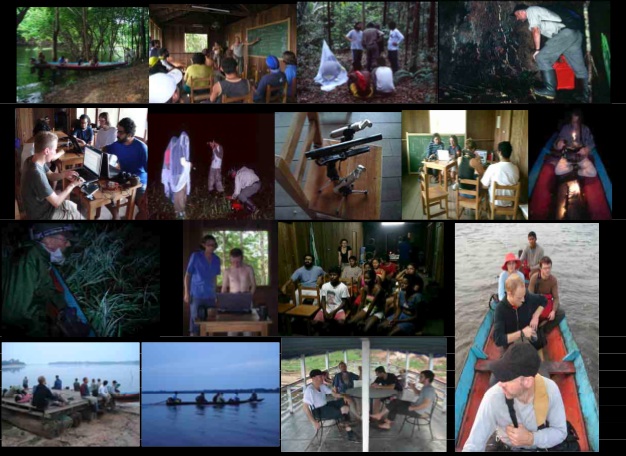
The language for the workshop/residency is English. The director also speaks Spanish and has medium-level knowledge of both Portuguese and French.
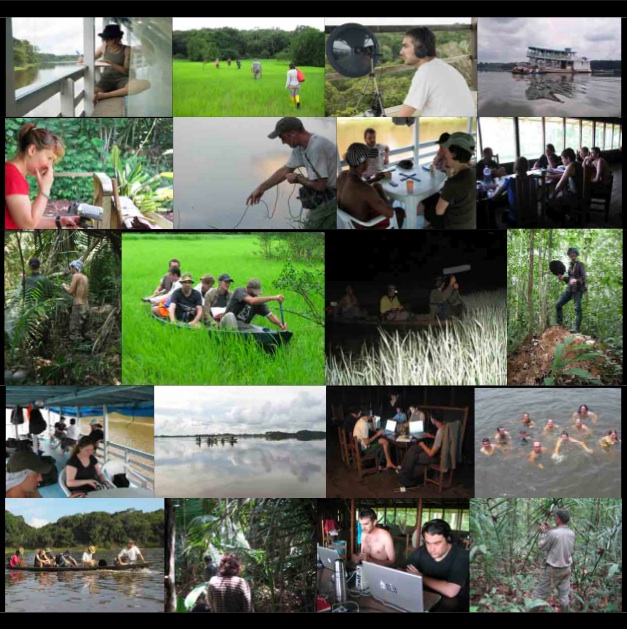
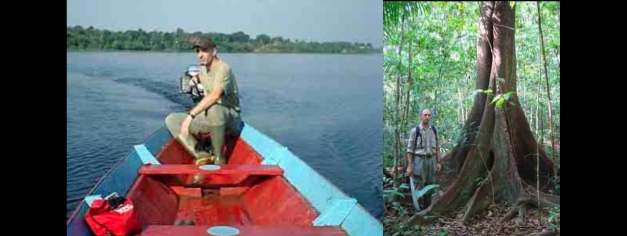
His experience in the field of sound creation and work with environmental recordings spans over a period of thirty years. His work has been released by more than 200 record labels worldwide and he has been awarded three times with honorary mentions at the competition of Ars Electronica Festival. He has realized hundreds of field recording projects, commissions, live performances, sound installations and workshops, as well as research in entomology and ecosystem dynamics, in 60 countries in the five continents, with a particular emphasis on tropical areas in the Americas, Africa and Australasia. He has been directing and organizing "Mamori Sound Project" since 2005 and he has a detailed sonic knowledge on its surrounding environments.
Comments from previous participants:
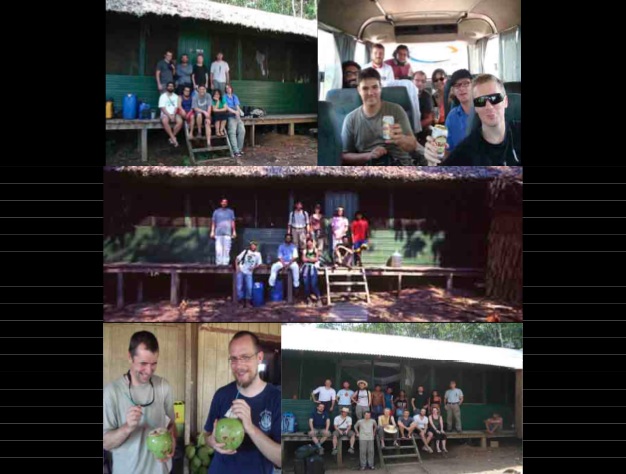
The prospect to do what one loves (in this case, sound recordings) in such a
magnificent setting, under the watchful ear of someone of the high calibre of Francisco
López must rate as one of the most satisfying experiences I have had in a long time.
López is the perfect man for this job: absolutely at home in the dense jungle, complete
with 20/20 hearing and a reference list of the most astonishing sound works you are
likely to hear. I can't recommend this workshop enough for artists seeking an richly
authentic and unique creative experience. - James Webb (South Africa)
The chance to immerse oneself in some of the world's most powerful natural sound
environments, under the guidance of one of the world's leading composer/theorists of
environmental sound is a rare and valuable opportunity for anyone, whether sound
artist, field recordist or acoustic ecologist. My experience at Mamori has changed the
way that I work and the way that I listen, and has left me with a rich collection of
sounds that will no doubt continue to serve as raw material and inspiration for years to
come. - David Drury (Canada)
I can't say it enough how I greatly enjoyed my stay at Mamori. It is one of the most
beautiful things I've ever done and I'm very grateful to all the organizers and
participants. For me personally it was very interesting because this workshop was very
condensed and focused on sound. Everything was so well organised in a very friendly
atmosphere. I liked very much the combination lecture - field recording - studiowork -
final presentation. It's a very good working formula. The knowledge and patience of
Jerson [local guide] in conjunction with the great ears of Francisco were an invaluable
asset for finding the great spots for the field recordings. I would highly recommend
this to anyone who wants to experience new sound worlds! - Arneoudt Jacobs (Belgium)
The experience at Mamori Lake was a whole catharsis and transformation, the extent
of which I could only fully realize upon return home. I'd deeply recommend it to
anyone interested in sound and, of course, also in the amazing ecosystem of the
Amazonian rainforest. I sincerely believe this was one of the most beautiful
experiences of my life, and a particularly intense one! - Ruben García (Spain)
I had a great time participating in the workshop. It was consistently provocative and
intense, with plenty of opportunities to challenge ideas, equipment, strategies, etc. The
schedule suggested was particularly well organized, with much freedom for everyone
to explore things if they felt the desire. A wonderful memory. - Matt Shoemaker (USA)
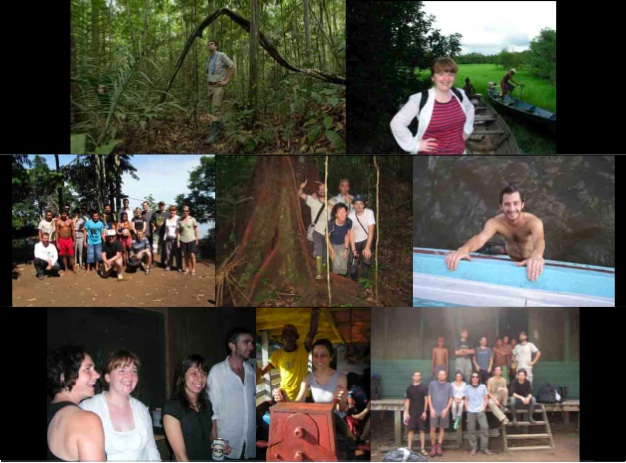
The Mamori Sound lab residency was one of the most intensely beautiful and amazing
experiences that I have ever had. The listening experience in the jungle is a most
unique auditory experience, it is rich, tremendously layered and complex,
incomparable to other auditory experiences that I had had. It changed my approach
to the practice of sound art. Lastly, the intense generosity of Francisco's character as
well as his knowledge of the jungle allowed me to undertake an experience that I could
not have possibly done alone. I highly recommend this workshop, IT IS A MUST! - Farahnaz Hatam (Iran)
It was really a great experience to be far away from civilization and just focusing on
the sound of nature. Really great and unpredictable sounds, some you can't believe
they are animals, some very electronic. It gave me lot of musical ideas just by
listening to the complexity and composition of the sounds in nature. It really gives you
another way of seeing upon time in music, I think. It was a very well organized
workshop, very well balanced between recording sessions, studio time, lectures and
discussions. - Olof Dreijer (Sweden)
Being so disconnected from the civilization (web and phone) is something barely
impossible in our daily life. It is possible with the Mamori Lab, and this is so relaxing
and help to reconnect with our deep inside. BTW, in the same order of idea, listening
to all those sounds from the forest without that background noise of our "(post)
modern" life, emphasis the sounds of the forest themselves, and help to experience a
kind of Yoga related to the listening act. Francisco Lopez helped so much in that
direction and kept us aware of the world of the forest with his extensive knowledge of
the wildlife and its habitat. I learned so much by the group experience with all this
people from around the world and different background, surely a must do to shift
definitively your vision of sound. - Luca Forcucci (Italy)
Mamori was wild, rich and wonderful. I continue to mine the stores of images and
audio for creative work. What a powerful experience that was. Thank you for running
such a magnificent program. - Perri Lynch (USA)
Mamori Lake is a place filled with mythical creatures that rarely showed their face but
always made themselves heard. The recorded and the real sat parallel so that while I
scratched my insect bites and ran out of sweat, I remained intoxicated by the
cacophonies of sound. It was so noisy and so rich and at times completely
overwhelming and exhausting. It was a fantastic opportunity to immerse my self in
such an incredible sonic landscape and work with a bunch of people who cared about
sound as much as I did. I learnt a lot from all the other Mamorians and I'm so grateful
for the opportunity to have been a part of this year's workshop. - Camilla Hannan
(Australia)
Thanks again for the wonderful experience, I gained so much from it and I'm so glad
that I took part. We were looked after so well by Francisco and the rest of the Mamori
team, and it was a wonderful break from everyday life to concentrate and think deeply
about our art. Plus it was an added bonus to meet so many interesting like-minded
people. - Hilary Mullaney (Ireland)
Physical exercise. Sleep deprivation. Magic of the place. Sense of time and
biorhythms. Dangers might feel sexy in some cases. Intensity. Best way ever to loose
some of the too-many-kilos owed to the sedentary way of life of us sound artists. - Marc Behrens (Germany)
MAMORI LAKE:
Mamori Lake is one of the myriad lakes in the Amazon river. The closest city is Manaus, capital of the Brazilian state of Amazonia. The trip from Manaus to Mamori Lake is about 3-4 hours, depending on the season and the transportation, which can be directly by medium-sized boat or via a combination of minivan and small boats.
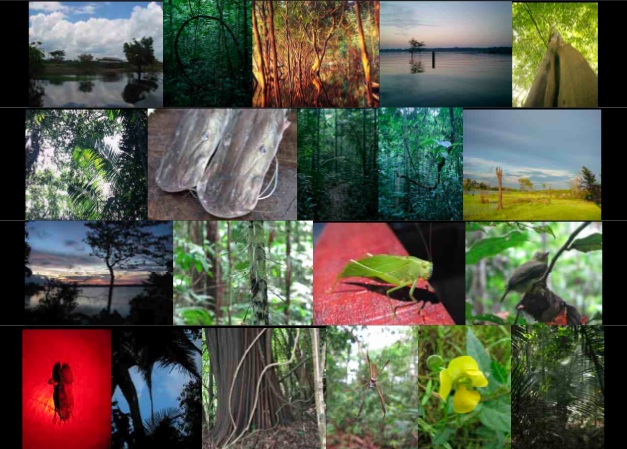
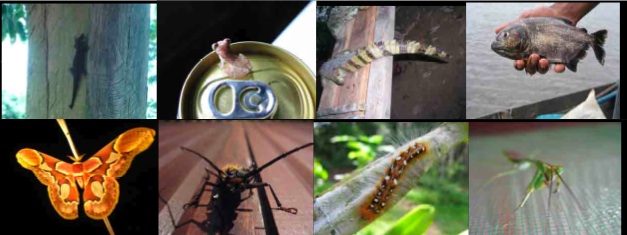
There is a small local community in Mamori Lake, scattered in small family properties around the lake, as well as a central comunal area. They live mostly on the local resources of the area, with fishing as one of their main activities. All people hired by Mamori ArtLab belong to this community and one of the main aims of the organization is to keep a constant feedback interaction with them. To this effect, Mamori ArtLab occasionally organizes educational activities with the community, public presentations of the results of the workshops, and even a soccer game (that the Brazilians invariably win).
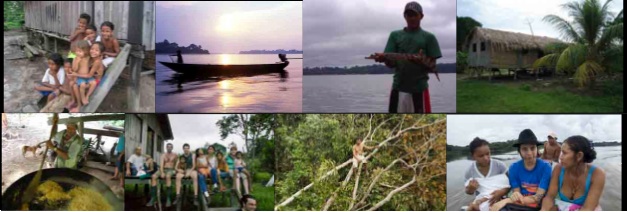
LOGISTICS / WHAT TO BRING:
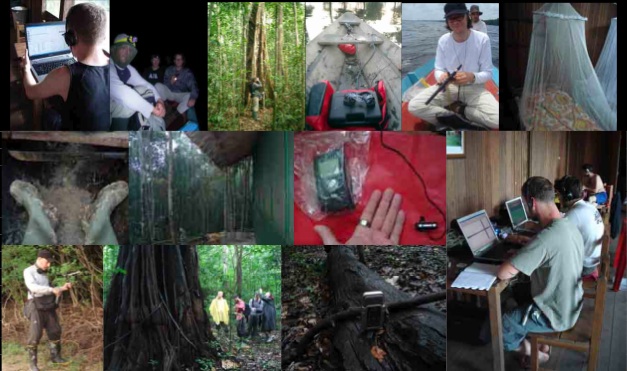
Food mainly consists of a fresh daily catch of Amazonian fish, from piranhas to tucunaré, the latter very appreciated in the area for its flavor. There is also occasional chiken and beef, as well as tropical vegetables and fruits. Rice, beens and tapioca flour are the most common local complements to the diet. With some limitations in the produce available in the area we can nevertheless provide a vegetarian diet.
All transportation from/to Manaus is organized with locally-hired boat and minivan transports. Although there are a few trails in the area, the main local transportation system is by small engine-powered boats or canoes. Mamori ArtLab hires an experienced local guide/boatman that is available 24-hours for all field recording trips and any other logistic needs (including going along for a fishing experience). There is also a cook, some ocassional maintenance workers, and a Mamori ArtLab logistics manager.
Like most tropical rainforest environments, Mamori Lake is home to a large number of wildlife species, some of which might be hazardous. Both piranhas and crocodiles are abundant in the waters of Mamori. However, like all wild creatures, they do not attack humans unless they are badly disturbed, and there has never been such an event in Mamori ArtLab. As is common in the whole Amazon basin, there are poisonous snakes in the area, but they are very rarely seen or encountered. Insect bites are more a daily thing one gets used to live with than a real danger. Although not abundant, there is malaria in the Mamori region, and thus medical prophylaxis and prevention against mosquito bites are important and recommended. Brazilian health authorities also recommend proper vaccination for hepatitis, yellow fever and typhus. They might ask foreigners for an international vaccination certificate upon arrival at Manaus airport.
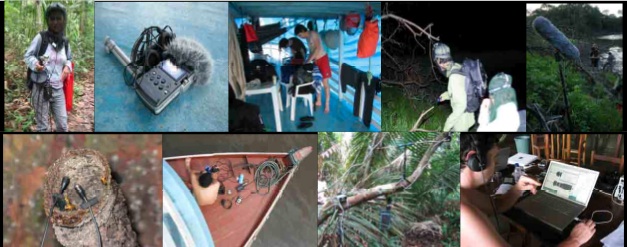
[most common things, such as sunblock, soap or batteries can be easily find and bought in Manaus, prior to the trip to Mamori Lake]
Sound recording gear: Participants should bring their own portable field recording gear. Field recording trips (which are made in group - see note 1 below) typically produce about 1-2 hours of recorded material, which has to be considered in terms of batteries and memory cards. Because of the high humidity it is highly recommended to keep all recording gear inside water-proof bags. We haven't experienced any humidity-related problems for a very wide range of the typical digital recording devices used today. However, we do have experienced problems with most condenser microphones (humidity condensation producing noise), while this never happened with electric ones (like the ones in Zoom devices). It is thus highly recommended to bring contact cleaner and/or "Detox-it" for cleaning cables and connectors (see note 2 below).
- Studio equipment: It is absolutely necessary that each participant brings his/her own studio equipment, that is, a laptop computer with audio software that the user knows how to use, as well as headphones and any external hard drives or pendrives you might need. Bring blank CDRs and DVDs for copies and back-ups and don't forget any of your necessary cables. A monitoring speaker system is available at the lodge for group listening sessions.
- Adaptors: Power sockets in the lodge (110V) are valid for European and American plugs, but not for UK, Australia or South Africa plugs, for example. Bring your adaptors, if needed. A small power strip for your plugs is also very helpful.
- Flashlights: Although there is electricity in the lodge, the power lines are not fully reliable and power cuts are not unsual. In addition, we have field recording sessions at night almost every day. A flashlight is thus one of the most-commonly used tools in Mamori. Head flashlights are very practical during field work. Bring plenty of batteries or rechargable ones with charger.
- Mosquito nets: The lodge is equiped with mosquito nets in the windows and also for the beds and hammocks. When inside the forest, and particularly at night, insects might occasionally be a nuisance. A head net is useful and allows to work more comfortably.
- Clothes: While inside the forest, it is recommended to wear long pants and a long- sleeve shirt, to prevent insect bites and scratches from thorns, etc. For all other situations, shorts and T-shirts are the most comfortable. Bring a bathing suit, since swimming with the piranhas and the dolphins is something we like to do at Mamori Lake. A thin jacket is not a bad idea, as some nights might feel relatively chilly. Since rain is likely to occur, even during the dry season, a light raincoat, poncho or equivalent is recommendable. A small umbrella might also be useful (rain and sun).
- Shoes: For the short hikes inside the forest and along the river banks high rubber boots ("wellingtons") are recommended, for both mud and to prevent insect or snake bites. For all other situations, sandals are perfect.
- Sunblock and hat: During the day, and particularly while on a small boat, it might get quite hot. Sunblock and a hat are very advisable.
- Water-proof bags: The combination of very high humidity, rain and life on small boats makes very recommendable to bring water-proof bags (from small plastic ones to a larger rubber one, like the ones used for canoeing) for all the electronic equipment, and even for books or clothes.
- Medicines: Every participant is responsible for taking proper health travel insurance. There is a standard first-aid kit in the lodge. In the Mamori Lake community there is a paramedic but no clinic or other medical services. Bring all your necessary medication. If any participant suffers any particular ilness or disease, he/she should inform the organizers beforehand and bring all proper specialized medication.
SERVICES, RATE AND APPLICATION/REGISTRATION:
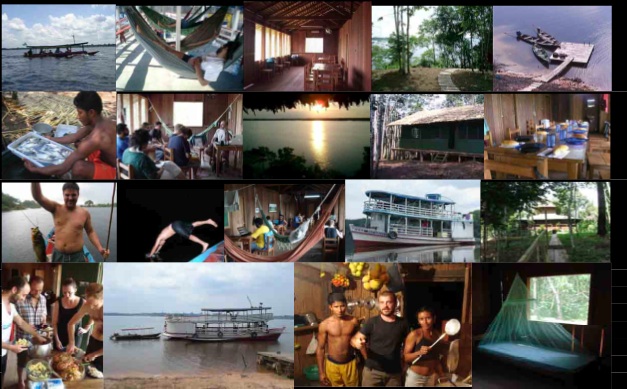
The workshop/residency includes:
- Daily working sessions with field recordings, studio work, and collective theoretical/discussion presentations (total of 8 to 12 hours a day, with optional activities and flexible schedules).- Full accommodation: 2 nights hotel (arrival/departure) in Manaus (double room, air-conditioned, swimming pool) + 13 nights cabin in private lodge in Mamori (double rooms with beds, mosquito nets, fan and shower/toilet, large dining/studio room with hammocks [which are also an option to sleep for those who prefer them], electrical system with 110V power sockets, monitoring speaker system, kitchen).
- All meals and beverages: including daily catch of fresh Amazonian fish (piranhas, among many others), purified drinkable water fountain, juices, beer and occasional caipirinhas. All meals in Manaus also included for arrival and departure days.
- Transportation from/to the airport in Manaus.
- Transportation to/from Mamori by van and boats (approx. 3-4 hours).
- Daily transportation in Mamori by boat to field recording sites (day and night).
- 2-3 day trip on large double-deck boat to another location in the Mamori region.
- Local guides/boatmen, cook, maintenance workers, and logistics manager.
- Rates:
Workshop/residency 2-week rate per person:
Payment until April 30th 2011: 1,900 euros
Payment after April 30th 2011: 2,100 euros
(Includes all of the above. Does not include flight to Manaus from participant's
departure location nor medical insurance.) Mamori Sound Project is a non-profit, independently-run project. Each participant artist/composer must seek funding for his/her workshop/residency costs, as well as the flight to Manaus and his/her medical insurance.
- Application:
The capacity of the workshop/residency is limited to a small group (currently a maximum of 12 participant artists/composers).
Artists/composers interested need to send an application (only email, no post), consisting of: (i) updated CV, and (ii) examples of their sound work on mp3 or through internet links, to the following address:
- Registration:
The artists/composers selected after the application process will receive a formal invitation letter from the director of Mamori Sound Project to help them in seeking funding support. To join the workshop/residency they will have to pay the fee and fill in a registration form that will be later provided by the organizers.Deadline for registrations: June 1st, 2011
- Dates workshop/residency:
Mamori Sound Project will take place in:October 2011
(second half of October; precise dates to be determined later)
The group needs a minimum of 8 participants for the workshop/residency to take
place, and has a maximum capacity of 12 participants.
Mamori ArtLab is an organization based in Spain and coordinated by
Marcos Ruíz (administration - Spain) and Asier Gogortza (logistics - Spain / Brazil):

Phone (Marcos Ruíz): +34-608815187
